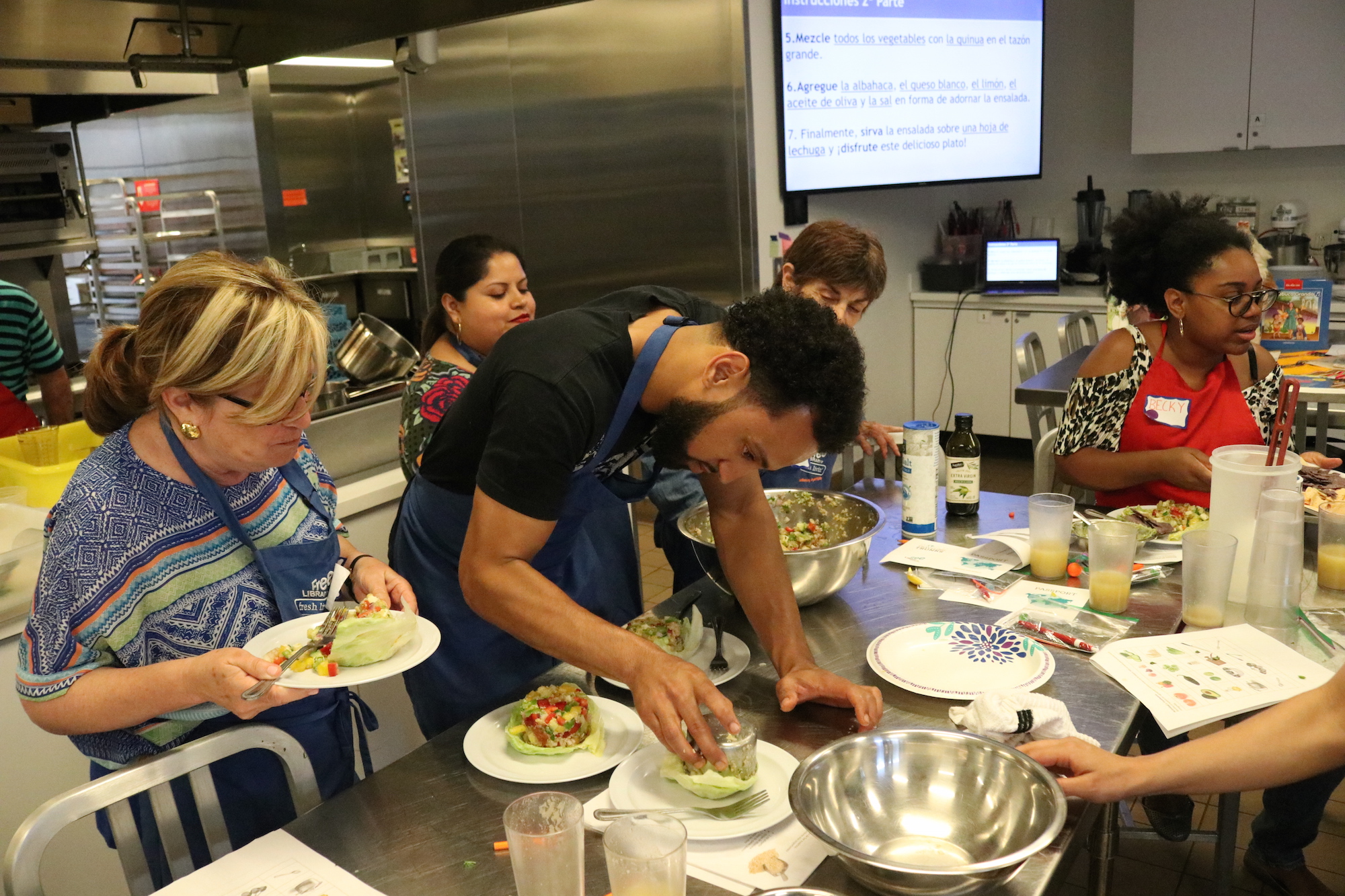
Teaching Spanish with cooking: A journey through the Edible Alphabet en Español
The class at the Free Library not only helped participants learn Spanish, but they also took home a recipe from Peru.
When the Free Library of Philadelphia first offered an Edible Alphabet course in 2015, it was for a group of torture survivors from all over the world who knew very little English. The class melds cooking a recipe with practicing a language, as participants learn the words for ingredients and actions in the kitchen as they put them to use.
The first edition of the class was a smash hit and the library has since expanded it to offer free six and eight-week English courses throughout the year.
Up to this point, Edible Alphabet classes have only been offered to teach English — attracting many new immigrants. But Lindsay Southworth, program director of Edible Alphabets, said the class’ success brought ideas for expansion.
“We thought: what if we tried to use it to teach a language other than English?” she said.
With that in mind, the library brainstormed ideas for an Edible Alphabet class in Spanish. In April, that brainstorming bore fruit, and the library held the first Edible Alphabet en Español. There have since been two more sessions — one in May and another in June.
“We’re still in the pilot phase, we’ll call it,” said Southworth at the final class last Thursday night.
While not free during this phase, the classes followed the same structure as the English versions. A chef and language instructor worked together to lead the class through a recipe, stopping along the way for activities such as purchasing the ingredients and learning to say each step in Spanish.
It creates an atmosphere conducive to learning a language.
“It helps people kind of lessen the anxiety that language learning can sometimes be in a relaxed, engaged environment,” said Southworth.
The class is also a time for the participants to learn about a culture different from their own. Last Thursday night, Chef Felix Caballero was on hand to show the class a recipe for quinoa salad, found in the Andes region of Peru. The dish is part of the country’s very diverse food culture.
“Food is very rich in Perú and it’s all different depending on where you are,” said Caballero.
RELATED CONTENT
The participants themselves came from all parts of the city, walks of life, and levels of proficiency in Spanish. Most attendees also went to the first two classes in April and May.
“It creates a community,” said Southworth.
In addition to cooking food, attendees were exposed to Peru’s history and culture with the help of librarian, Mary Marques, who is Peruvian. She brought with her a collection of traditional instruments and clothing, samples of Peruvian currency and children’s books, which are especially helpful for those learning Spanish.
For her, a class like Edible Alphabet is important because it helps participants understand more about the city’s cultures and resources that they’re not always exposed to.
“This is a very multicultural city,” said Marques. “It helps others understand more about their neighbors and their individual stories.”
Southworth says Edible Alphabet will resume classes in languages other than English in September, coinciding with the Free Library’s opening of a new center for languages and learning for basic adult education and English-language learners.
In the meantime, English Edible Alphabet is still being held in six and eight-week courses throughout the summer. Most classes are held at the state-of-the-art Culinary Literacy Center at Parkway Central Library, but also take place in North Philadelphia (at 6th Street and Lehigh Avenue) and Chinatown (at 7th and Market streets).
Edible Alphabet classes in Italian and Mandarin are also currently in the works.











LEAVE A COMMENT: